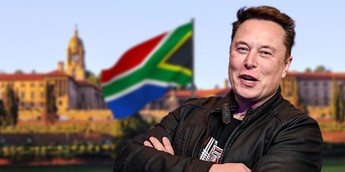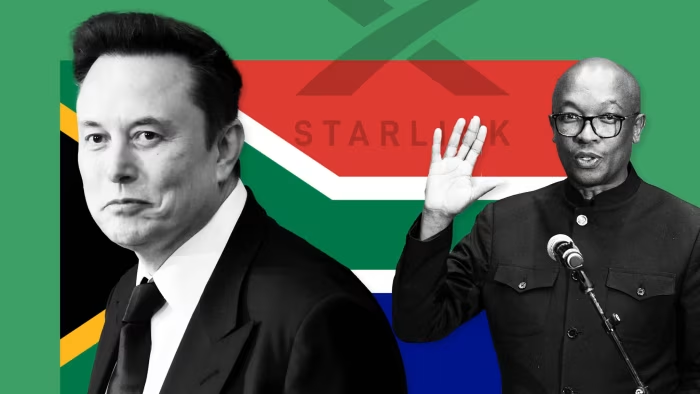Physical Address
60 Ekwema Cres, Layout 460281, Imo
Physical Address
60 Ekwema Cres, Layout 460281, Imo

Starlink is pushing to revise South Africa’s 30% black ownership law as it tries to bring its satellite internet service to the country. Elon Musk’s company SpaceX, which runs Starlink, says the current rules are too strict. These rules require telecom companies to have at least 30% ownership by historically disadvantaged groups, or HDGs. This rule is part of South Africa’s Black Economic Empowerment (BEE) policy to help fix the economic unfairness caused by apartheid. But Starlink thinks these rules make it hard for it to start working in South Africa.
South Africa’s 30% black ownership law was created to give more business opportunities to Black South Africans and other groups that were held back in the past. It makes sure that companies in telecom and other important sectors share ownership with these groups. While this law is important for promoting fairness, Starlink says it also blocks new technology and investment from coming in easily.
Read Next: MTN South Africa Cuts Revenue Outlook As Competition Deepens
Starlink’s satellite internet could change the way people get online in South Africa, especially in rural areas. South Africa is a very big country, and in many places, it is difficult to build normal internet connections. Starlink uses over 5,000 satellites to beam internet from space, which means it does not need lots of cables or towers. This could bring fast and affordable internet to schools, businesses, and homes that do not have good access right now.

But Starlink has been unable to get permission to operate in South Africa because of the 30% black ownership law. SpaceX says it supports the ideas behind BEE but wants South Africa to be more flexible. Instead of forcing companies like Starlink to give up part ownership, SpaceX suggests other ways to help. They propose “equity-equivalent” investments, like providing free internet to schools or government buildings. This way, they can support communities without changing their company structure too much.
The BEE policy has been around for nearly 30 years. It has helped many Black South Africans get better chances in business and skills training. But the policy also makes it hard for foreign companies to follow all the rules, especially when those companies have different ownership structures worldwide. For Starlink, following the 30% ownership law has been a big hurdle.
This topic has become more complicated because of political tensions between South Africa and the United States. There have been disagreements over other laws, and Elon Musk himself has made strong comments about South Africa’s policies, which did not help matters. South African President Cyril Ramaphosa has spoken directly with Musk, trying to ease the situation and find a way to move forward.
Reports say the South African government might allow Starlink to operate if the company makes “equity-equivalent” contributions instead of full ownership transfers. These could include community support or giving internet access to public institutions. This option tries to balance keeping the goals of BEE while welcoming new technology like Starlink.
If Starlink can start working in South Africa, it could help bring better internet to many people, especially outside the big cities. Better internet means better education, more jobs, and stronger businesses. Starlink has already helped nearby countries like Zimbabwe by delivering internet to hard-to-reach places.
But not everyone agrees with changing South Africa’s 30% black ownership law for Starlink. Some groups, like the Economic Freedom Fighters (EFF), say changing the rules would weaken South Africa’s efforts to fix economic inequality. EFF leader Julius Malema has accused Elon Musk of wanting to harm South Africa’s control over its economy and politics.
Starlink’s challenge in South Africa shows a bigger problem that many global tech companies face. Local rules that protect disadvantaged groups sometimes make it harder to bring new technology to those countries. South Africa wants to grow its economy by attracting foreign companies but also needs to protect its people’s rights.
Read Next: MTN South Africa has Appointed Ferdi Moolman as New CEO
Since last year, government officials and Musk have been talking to find a solution that works for both sides. How these talks end will decide if Starlink can start its service in South Africa and how the country continues to promote economic fairness.
For now, Starlink pushes to revise South Africa’s 30% black ownership law because it believes it can help millions of people get better internet. The company says it is ready to work with the government to find a way forward that helps South Africa’s economy and brings new opportunities to everyone.
Was this information useful? Drop a nice comment below. You can also check out other useful contents by following us on X/Twitter @siliconafritech, Instagram @Siliconafricatech, or Facebook @SiliconAfrica.